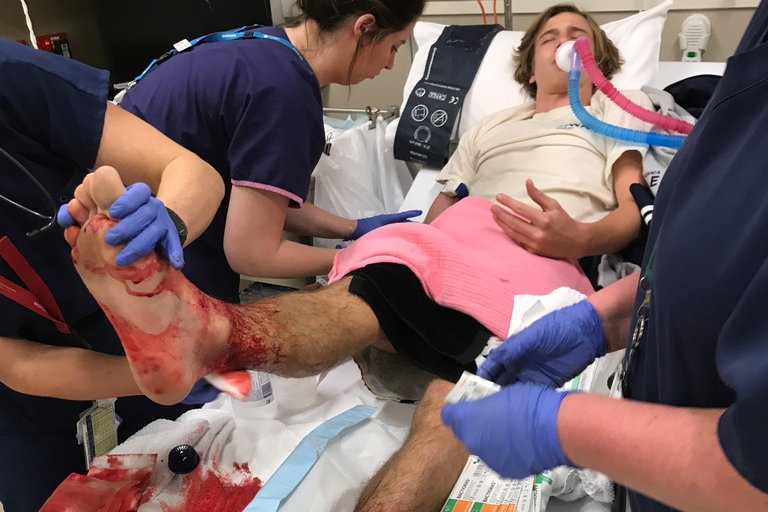Australia holds some of the world’s most dangerous – and mysterious – creatures in the animal kingdom, including some of the deadliest snakes, toxic spiders and heart-attack inducing jellyfish.
On Monday, a new case was added to the list of baffling animals when a teenager in Melbourne found his legs chewed up by an unidentified species, the New York Times reports. Graphic photos of the boy’s legs spread through social media, showing the extent of his injuries.
Sam Kanizay, 16, said that he just wanted to soak his tired legs at Dendy Street Beach in Brighton after coming from a football match. He spent a half-hour in the water, and was shocked to discover that his ankles were pouring blood when he waded out.
Doctors and scientists alike have been puzzling over the source of the attack, and the severity of Kanizay’s injuries. The main theory now is that hungry sea lice swarmed his legs. Also called marine isopods, these are crustaceans that are usually parasites of fish. When they do bite humans, they leave pinpricks that can appear as a rash.
Jarrod Kanizay, the teen’s father, decided to do some investigating of his own. He dropped a piece of raw meat in the water where his son was attacked, and took a video of hundreds of tiny creatures swarming the steak.
There are differing opinions on what caused the injuries, however. Alistair Poore from the University of New South Wales said that the video shows amphipods, not sea lice. These creatures are not known to bite humans. He said,
You can attract a lot of animals in the sea with raw meat. Even though it’s interesting, it doesn’t prove to me they were the ones that bit his legs.
He doubts that sea lice were behind the attack, but suspects that there may be more of them than usual in the area, which can happen when there are a lot of dead fish present. “It’s a fascinating story to show that the animals are out in urban areas, we don’t live totally separated from nature,” Poore said. “Just like there are mosquitoes and leeches on land that will bite humans, the same happens in the ocean.”
























